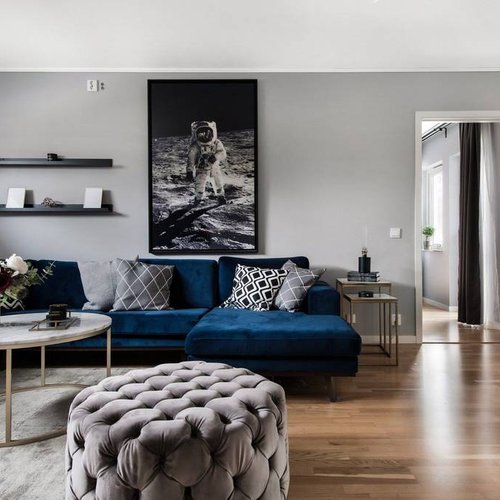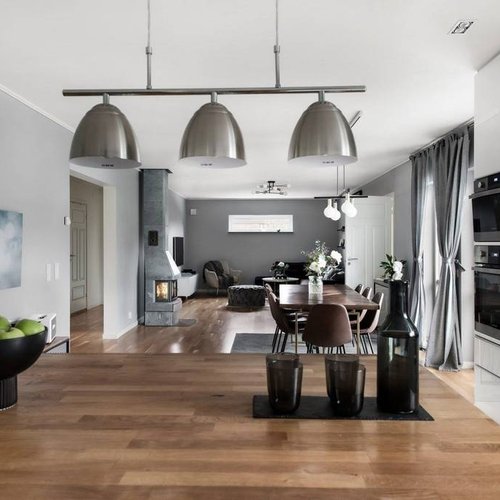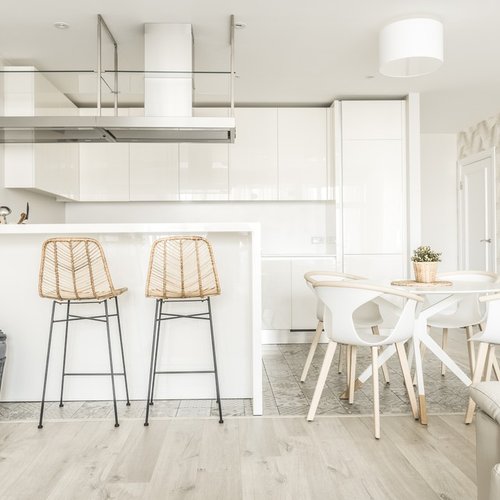Agnese Kalnīte. Ekskluzīva intervija ArtAlea galerijai
Agnese Kalnite is an interior designer with 6 years of experience. Agnese received her professional education in Latvia and Spain (Barcelona). Art, culture, fashion are the main components of her life.
Agnese devotes all her free time to her development - she reads books, surfs and travels. Nature, wind and the sea are the biggest sources of inspiration and energy for the creativity of this designer. We present an exclusive interview with Agnese Kalnite, which she gave to the ArtAlea Gallery.
- Agnese, how did you decide to become a designer? On your website it is written that this happened after six months spent in Paris. What impressed you so much in Paris that you made such a decision?
“I have a creative, bohemian gene from my grandfather, who was an artist, and interior design is a promising profession in which I can combine the desire for creative self-expression with analytical thinking and communication with people."
- Yes, I was very inspired by the time I spent in Paris. While living there, I realized that I wanted to connect my life with the creative sphere, to be closer to art and everything beautiful. I decided to change my field of study from economics /commercial diplomacy to art and after returning to Riga I started studying interior design. I realized that I had a creative, bohemian gene from my grandfather, who was an artist, and interior design seemed to be a promising profession in which I could combine the desire for creative self-expression with analytical thinking and communication with people.
- You are leading projects in Riga and Stockholm. Do the requirements of customers from different countries differ? Where are the customers more demanding and sophisticated? Perhaps you have experience working with clients from Barcelona, where you studied, share your impressions.
- I think that the requirements of clients are influenced not so much by nationality as by the level of quality of life, education, lifestyle and the environment. Of course, there are positions where the differences are more pronounced, for example, in the choice of colors in Latvia we are used to monochrome, more neutral colors, in Sweden a lot of dark, saturated tones or bolder contrasts are used. I didn't feel that somewhere customers are more sophisticated or spoiled, rather, along with financial stability, quality and durability are a priority.
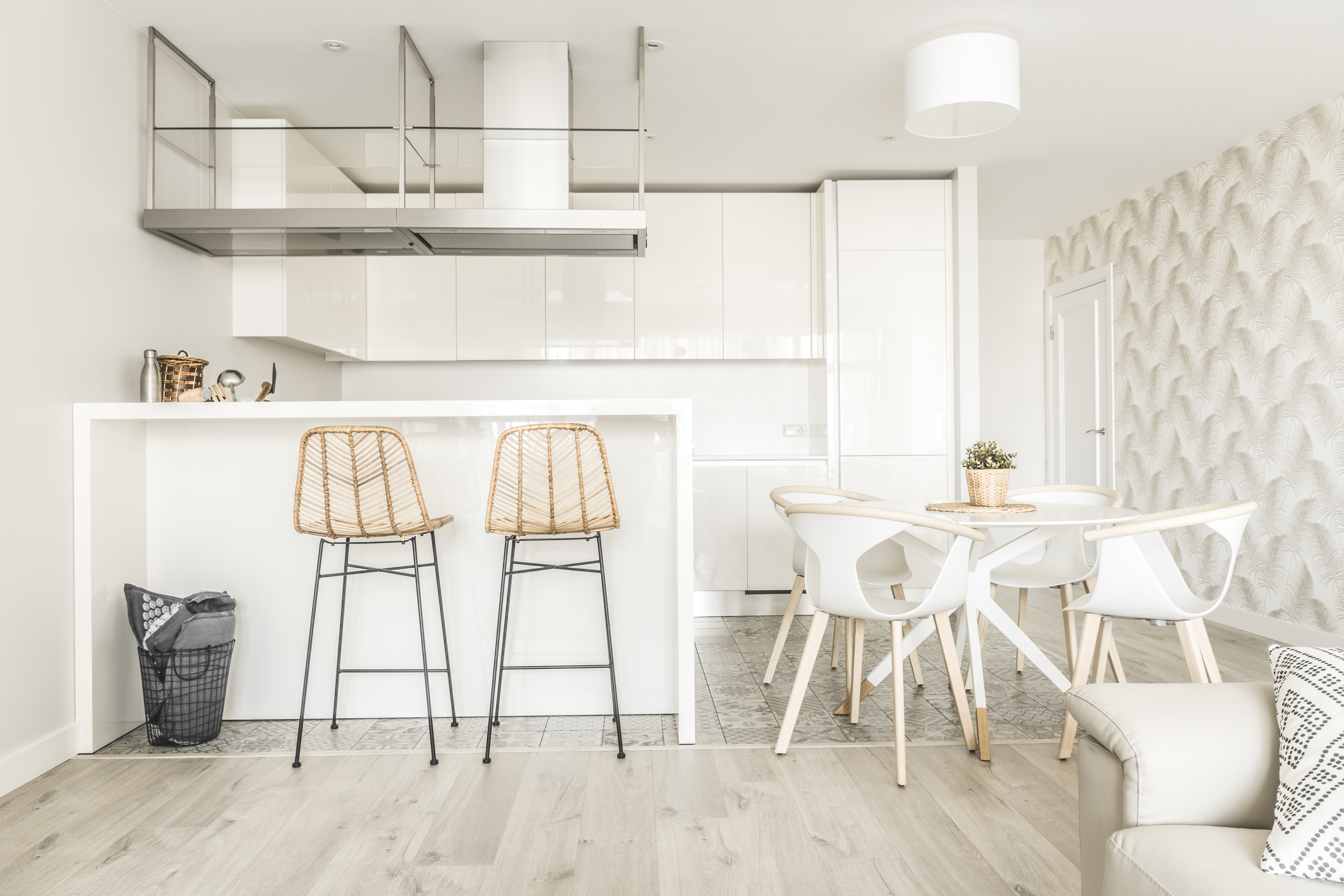
- When a new client comes, does he already have an idea of what exactly he wants or is he waiting for the initiative and fresh ideas from the designer?
"Most often, the client already has an idea and vision of what he likes and what kind of atmosphere he wants to see."
- Most often, the client already has an idea and vision of what he likes and what kind of atmosphere he wants to see, but he does not have enough free time or knowledge for this. Therefore, the client turns to the designer. If there are no concrete ideas, then my task is to ask the right questions in order to find answers together and find optimal solutions.
- According to your observations, does the character of a person find reflection in the interior?
“I pay a lot of attention and energy to understanding the personality of the customer and his lifestyle, so that the house creates joy and corresponds to the personality of the owner.
- Yes, of course! The interior of each owner reflects his personality, taste and lifestyle. I am for the environment and housing to complement our natural rhythm and adapt to us in order to facilitate our daily life, make it more comfortable and beautiful, at the same time, it is important not to get carried away with things in order to be able to change the environment following the changes within ourselves. Working with a client, I pay a lot of attention and energy to understanding the personality of the customer and his lifestyle, so that the house creates joy and corresponds to the personality of the owner.
- Do you prefer to use paintings, photographs or posters in the interior design? And why?
“I use paintings with pleasure in the interior design."
- I use paintings with pleasure. Recently, I have experienced the greatest satisfaction when, at the initiative of a client, we ordered a series of three paintings by a young talented artist from Paris. Throughout the whole process, I was in close contact with the artist, it was incredible to watch how our vision came to life from an idea. Posters and prints, in my opinion, are more like decorations that do not have a special emotional value, but they are useful in order to create an atmosphere by simple means.
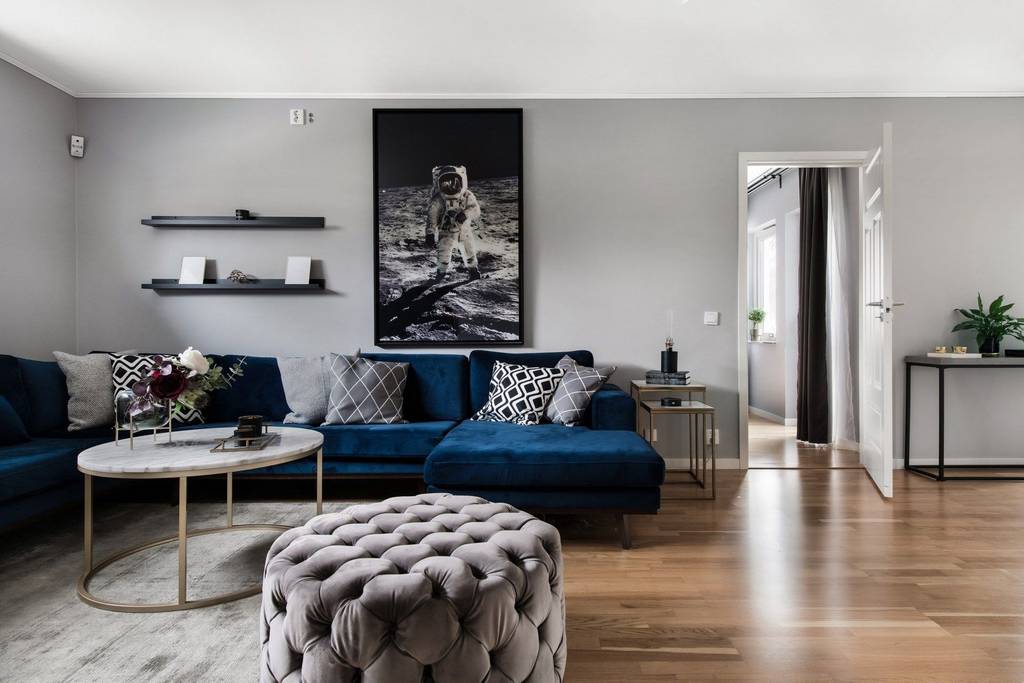
- Does it happen that the customer already has a collection of paintings that you need to fit into the interior? And how is the work being built in this case?
- Yes, it happens that a client has a couple of works of art that need to be included in a new interior. This is an interesting process, because it allows you to prioritize art and organize work around it.
- In your opinion, why do you need art in a modern house? What does it give? What are the purposes of its use?
- The purpose and motive of using art are individual for everyone. Someone is looking for a visually decorative addition to the interior, someone reflects their individuality with the help of art, for someone art can even be a confirmation of status or individuality. It depends on a person's personality, interests, education, various social and economic factors that shape our tastes and dictate our choice. Of course, these decisions are also influenced by trends and world events. This is a question that can be discussed for a long time, but my personal opinion is that art should be chosen on the basis of emotions and intuition, because this is also the main purpose of using art - to stimulate emotions, convey a message, leave a trace in the viewer's mind. I see the use of art in a modern home as a beautiful part of the story, often as a final part or an exciting starting point.
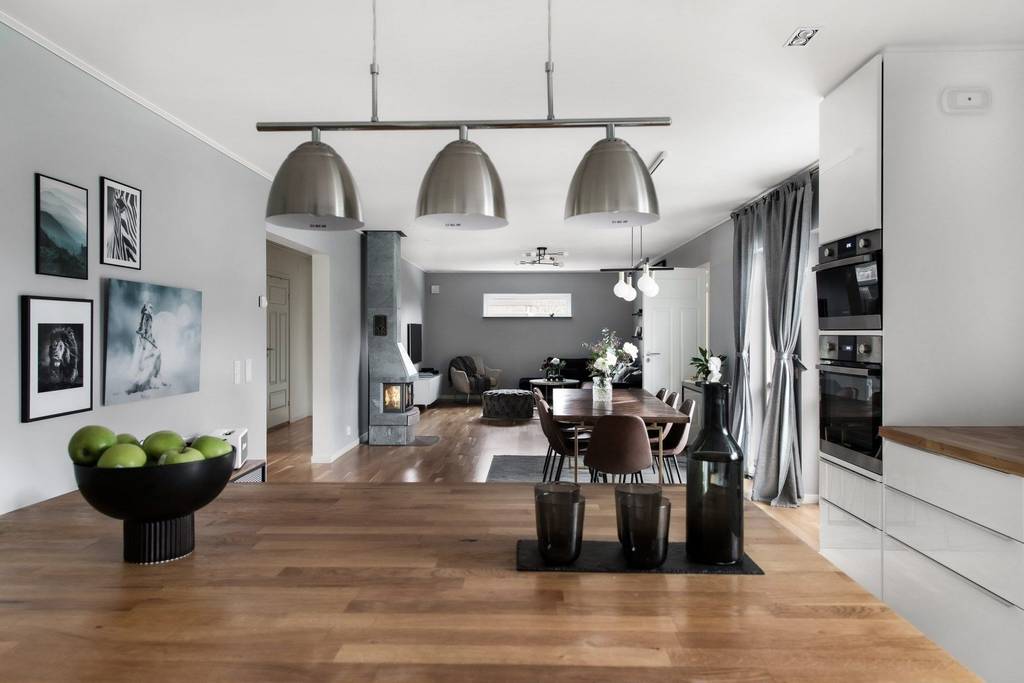
- Are there any pronounced trends in the use of modern art in the interior?
“Virtual art, various 3D art objects, as well as street art motifs and environmentally friendly materials suitable for recycling are gaining popularity in global trends."
- To include modern art in the interior, the customer must be bold, show interest in this topic. Not everyone will want to include flashy art objects in their home. Virtual art, various 3D art objects, as well as street art motifs and environmentally friendly materials suitable for recycling are gaining popularity in global trends.
- What advice could you give for those who want to fit works of modern art into an existing interior?
“ The most important advice is to show courage and trust your intuition."
- I would recommend visiting art galleries and exhibitions to understand your taste and feel what kind of art direction you would like to see in your home. Currently, virtual art exhibitions are very common, this is a great opportunity to get inspired and expand your horizons. The most important advice is to show courage and trust your intuition.
ArtAlea Gallery thanks Agnese Kalnite for the opportunity to learn her innermost thoughts about contemporary art, design and the creative process. Just as it is important for an interior designer to know the identity of the customer in order to properly design the interior space of his house, it is also important for us to know the identity of the designer whom we will invite to design our interior decoration. Knowing what a particular designer lives and breathes, we can understand who resonates more with our thoughts and emotions and thus make the right choice. And this is a guarantee that our house with a new interior will become for us the spiritual abode that we will want to return to again and again.
